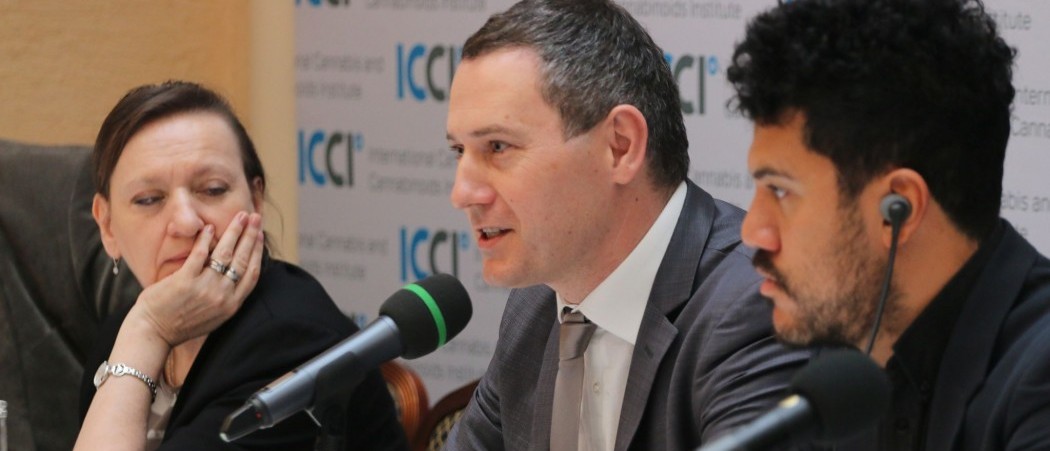In an unusually warm December, the medical cannabis advocacy organization Americans for Safe Access were joined by the Minister of Health for the Czech Republic, Svatopluk Němeček to announce the establishment of a new research center, the International Cannabis and Cannabinoid Institute (ICCI) – intended to foster evidence-based exploration with a modern scientific approach to refine the therapeutic applicability of cannabis-based medicines in the Czech Republic.
Run in conjunction with KOPAC, a patient’s organization that was formed to pass and implement medical cannabis laws in the Czech Republic, and Dioscorides Global Holdings (DGH), a New York-based investment platform focused on the emerging legal cannabis industry, ICCI will identify, coordinate and support global research priorities for the advancement of cannabinoid treatments through a multidisciplinary evidence-based approach that incorporates the most innovative tools and approaches.
The work of the ICCI will remove barriers to access for patients globally by bringing together the current knowledge base for cannabis research as it relates to biomedicine, life sciences and policy sciences to create a platform for sharing, exploration and education.
“As a medical cannabis patient who has been benefiting from it use for 14 years, I have felt a responsibility to ensure that other patients in the US, and now globally, have the choice to utilize cannabis treatments,” said Steph Sherer, executive director of Americans for Safe Access. “The creation of the ICCI is an integral step in fulfilling that commitment. The work of the ICCI will remove barriers to access for patients globally by bringing together the current knowledge base for cannabis research as it relates to biomedicine, life sciences and policy sciences to create a platform for sharing, exploration and education.”
New scientific and medical research has revealed many health and therapeutic benefits of cannabis in the decades since it was first included in the 1961 UN Convention on Narcotic Drugs Schedule IV list of restricted drugs. In the arena of cannabis research, scientists have observed both the therapeutic effects and safety profile in diverse patient groups who have already received cannabis as a part of clinical trials. These findings have been challenging to investigate due to an array of circumstances such as the international criminalization of the cannabis plant, scarcity of available research institutions, and lack of funding.
Despite these hurdles, millions of people are finding relief using cannabis treatments for an array of medical conditions and symptoms. Currently, two-thirds of the US population live in states with medical cannabis laws, and over 2 million Americans currently use medical cannabis as a treatment option. Canada, Israel, Netherlands, Czech Republic, Croatia, Mexico, Uruguay, Romania, Germany, Jamaica, Australia, Colombia, and Switzerland all have national medical cannabis programs, while dozens of other countries are in the process of reviewing legislation.
The purpose is to enable scientific examination of the relation between bioactive cannabis compounds and the effect on the human organism in the treatment of specific syndromes and, in the future, systemic health disorders.
“The main work of the ICCI is to provide scientific instruments to public and private institutions all over the world. The purpose is to enable scientific examination of the relation between bioactive cannabis compounds and the effect on the human organism in the treatment of specific syndromes and, in the future, systemic health disorders,” said the ICCI CEO Pavel Kubů.
As an international collaborative project of nonprofit, for-profit, and government institutions, ICCI has developed strategic project partnership alliances with participation from Universities, Hi-Tech Companies, and Institutions from around the globe and will become an international research and educational hub designed to meet the needs of patients globally. ICCI is connecting a cross-disciplinary approach that captures the current knowledge base across the fields of biomedical research, social science, life sciences, and policy research with the sole purpose of identifying and resolving barriers to advancements. The results are to be shared across academia, research institutes, private endowments, governments, medical professional, patient advocacy organizations, health service providers, and product manufacturers.
The buy-in from the top tier Czech medical institutions is unprecedented.
“We knew we wanted to invest in science-based cannabis research. The remarkable work being done by Americans for Safe Access – and their sister group KOPAC in Prague – has made it possible for this work to exist in the correct legal framework. The buy-in from the top tier Czech medical institutions is unprecedented. We are excited to have these institutions, scientists, doctors, researchers and government leaders on board with our mission. This is the single best place and group of people with whom to launch the ICCI, and I am confident this institution will inform and advance how the world perceives and applies cannabis-based medicines,” said Ben Bronfman, Founder of DGH.
With over 100,000 active members in all 50 states, Americans for Safe Access is the largest national member-based organization of patients, medical professionals, scientists and concerned citizens promoting safe and legal access to cannabis for therapeutic use and research. They work to overcome political and legal barriers by creating policies that improve access to medical cannabis for patients and researchers through legislation, education, litigation, grassroots actions, advocacy and services for patients and the caregivers.
It seems the mild weather was not the only warm reception. See below a report on the announcement on Czech news.










